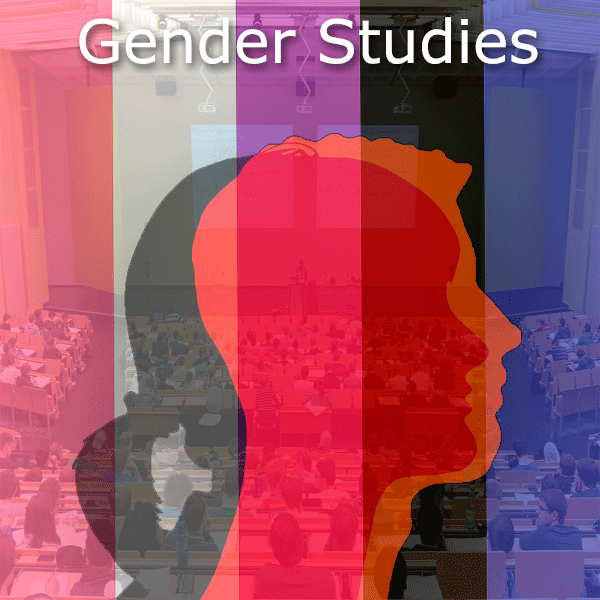
by Rose Laoutaris
Many universities today offer majors and courses on Gender and Sexualities studies, and Marquette University, a Jesuit university in Milwaukee, Wisconsin, is no different. Marquette has its own Center for Gender and Sexualities Studies which, according to its website, “is dedicated to the pursuit of knowledge, dialogue, growth, and empowerment around issues of gender and sexualities…, [placing] emphasis on the intersections of race, ethnicity, gender and sexualities and educate others on the implications of such intersections…, [with the] goal to educate students to recognize the huge diversity of gendered experiences and perspectives among people and to cultivate a disposition to embrace gender and sexuality diversity and to work for justice and equality as we strive to fulfill the Jesuit mission.”
However, there has been recent backlash against the university because many say that the new courses offered by the school, along with an incident where “glitter ashes” were distributed on Ash Wednesday to support the LGBT community, have shown that the university is straying from its Catholic roots.
One example of a course offered by the school that is straying from its Catholic doctrine is called, “The Queer Self: Narrative Explorations of Intersectional Identity,” and it is taught by Dr. Ed de St. Aubin. According to a flyer from the school, “This course explores narrative psychology as a method of examining the complexities of queer identity. [They] examine gender-nonconformity and transgender dynamics as well as a variety of sexual orientations and behaviors from a social justice orientation. The flyer also pictures five different people referred to by different pronouns, such as “pers,” “their,” and “zir.”
Students, such as the former president of the Marquette University College Republicans, Zachary Petrizzo, say that these courses “take away from what a Marquette education should be focused on, that of tradition, faith and reason.” The professor who teaches this course disagrees and states that “the courses [he] teach[es] are science based and it would be wrong to NOT offer these courses to [his] students” and that they also “provide students with a high-quality education and… fill a void in [Marquette’s] curriculum.”
However, Petrizzo’s criticisms are justified. If Marquette wants to call itself a Jesuit school, it cannot teach classes, such as “The Queer Self: Narrative Explorations of Intersectional Identity,” that do not align with Catholic beliefs. If Aubin believes that there is a “void” in Marquette’s curriculum, he should teach that course at a school that is not Catholic or religious, and students who want to take his class can choose to attend that school.
Admittedly, on Marquette’s about page, there is a Statement on Human Dignity and Diversity which states that “[a]s a Catholic, Jesuit university, Marquette recognizes and cherishes the dignity of each individual regardless of age, culture, faith, ethnicity, race, gender, sexual orientation, language, disability, or social class” and that “because Catholicism at its best seeks to be inclusive, we are open to all who share our mission and seek the truth about God and the world.” Yet there is a difference between (a) treating members of the LGBT community with love and respect and (b) celebrating the LGBT lifestyle, which Marquette has done through its courses and allowing LGBT students to use glitter as their ashes on Ash Wednesday.
A Catholic university that overtly claims to “seek the truth about God and the world” should surely recognize that the idea of “gender” is not Biblical, which is the recognized source of God’s truth and Catholic teachings. Two preeminent Biblical teachings—one in the first book of the Bible’s Old Testament, and the other in the first book of the Bible’s New Testament— make clear that God designed only two “sexes.” Genesis 1:27 says, “So God created man in his own image, in the image of God he created him; male and female he created them.” Matthew 19:4 says, “He answered, ‘Have you not read that he who created them from the beginning made them male and female’.”
Even if Aubin’s course did align with Catholic teachings, it is still not based in established science, since biological science does not support the idea that there are more than two sexes. A person’s sex is determined at conception since the child receives a sex chromosome from both the mother (an X) and the father (either an X or Y). Their genotype will either be XX, meaning the child is female, or XY, meaning the child is male. There are sex chromosome abnormalities, such as X, XXX, XXY, or XYY, but biological scientists refer to those as genetic defects, not different genders.
In fact, the word “gender” is a relatively new concept invented by sociologists in the 20th century. First coined in the 1940s, the word was embraced and amplified by the feminist movement in the 1970s. It has no basis in human history.
Marquette is not the only school that offers these ridiculous gender and sexuality studies courses. For the past several decades, universities in the U.S. have begun to offer more and more gender studies courses, and today, 377 universities in the U.S. offer Gender Studies degrees, including all but two out of twenty-eight Jesuit universities in the U.S. (Spring Hill College and Wheeling Jesuit University).
Such courses undermine universities’ established educational mission, as Petrizzo points out. Worse, they squander finite financial resources and unnecessarily raise the cost of a university education for students.
Rose Laoutaris is a 2018 CBLPI Fall Intern.
Ed Note: For major 2016 research report on Sexuality & Gender, see one page handout.

